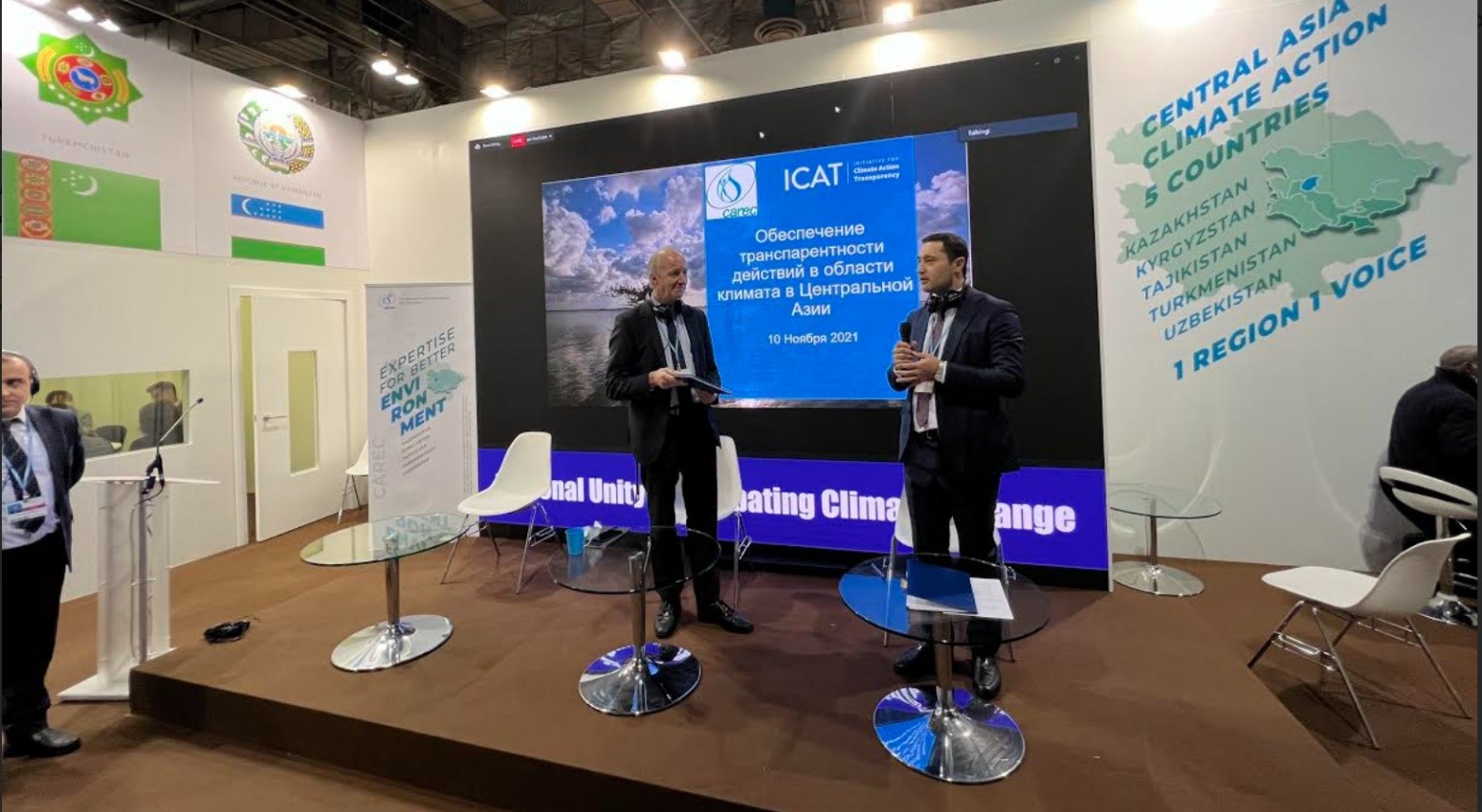
On November 10, 2021, the First Steering Committee Meeting Regional Climate Action Transparency Hub for Central Asia of the Initiative for Climate Action Transparency ICAT (ReCATH) was held within the framework of the twenty-sixth session of the Conference of the Parties (COP-26) of the UNFCCC in Glasgow, where for the first time in the 26-year history of the global conference, Central Asia (CA) was presented as a single region with a common platform for confronting climate challenges.
During the event, an Agreement was signed between ICAT and the Regional Environmental Center for Central Asia (CAREC).
The project aims to create a Regional Climate Action Transparency Hub for Central Asia and will be implemented by the CAREC over three years with financial and technical support from ICAT.
The meeting was held in a hybrid format (offline and online), in which representatives of the state bodies of the participating countries of the project and all interested parties got acquainted with the technical elements of the implementation of the ICAT Initiative in Central Asia, including the main actions, timing and deliverables of the project, opportunities for regional dialogue on transparency issues, and also discussed the main gaps in transparency and monitoring of climate action in the countries of the region.
Henning Wuester, Director of the Initiative for Climate Action Transparency (ICAT) highlighted the importance of a strong institutional basis for transparency activities.
Given the importance of this problem for the Central Asian region, where climate change harms the melting of glaciers and the reduction of water resources, on which the development of the agricultural, energy, and industrial sectors depends, all participants of the meeting expressed their readiness for close cooperation for the successful implementation of the project to continue productive dialogue and exchange of professional experience.
For reference:
The Initiative for Climate Action Transparency (ICAT) aims to help countries better assess the impact of their climate policies and actions and meet their transparency commitments. This is achieved by strengthening the overall transparency capacity of countries, including the ability to assess the contribution of climate policies and actions to the achievement of countries' development goals, and by providing appropriate methodological information and tools to support evidence-based policies. ICAT's work is aimed at maximizing the attraction of national experience and encouraging the exchange of experience.
The Center will adopt and implement a collaborative approach that will bring together the five Central Asian states (Kazakhstan, Kyrgyzstan, Tajikistan, Turkmenistan, and Uzbekistan) and support technical experts and experts institutions in the region to build sustainable and integrated monitoring and transparency systems.
You can find more information here:
https://climateactiontransparency.org/about/
